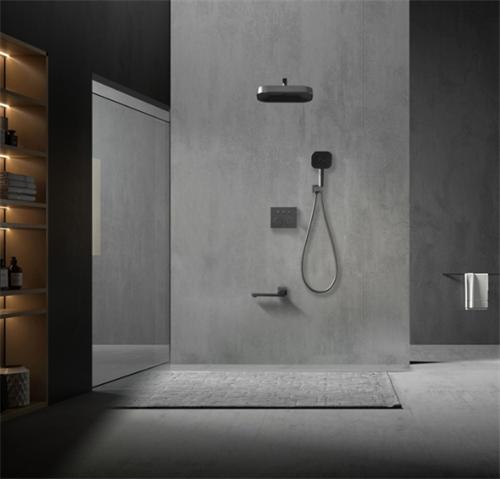Water-Saving and Energy-Efficient Fixtures: The Future of Bathrooms
The global shift towards sustainable and eco-friendly practices has significantly influenced the evolution of the bathroom industry, leading to a growing emphasis on water-saving and energy-efficient fixtures. As consumers increasingly seek environmentally conscious solutions for their homes, manufacturers are leveraging innovative technologies and designs to create a new generation of bathroom wash basin taps, bath taps, and wall taps that prioritize efficiency without compromising on performance.

Water-Saving Fixtures: A Paradigm Shift in Bathroom Design
The integration of water-saving technologies in bathroom fixtures represents a significant paradigm shift in contemporary bathroom design. Manufacturers are reimagining traditional bathroom wash basin taps and bath taps, incorporating aerators, flow restrictors, and sensor-activated mechanisms to minimize water consumption while maintaining optimal functionality. These innovative features not only contribute to environmental conservation but also offer tangible benefits to consumers, such as reduced utility bills and a heightened awareness of water usage.
Energy-Efficient Solutions: Redefining the Role of Bathroom Fixtures
In parallel with water-saving initiatives, the industry is also focused on enhancing the energy efficiency of bathroom fixtures. The development of energy-efficient bath taps, basin taps, and wall taps is driven by a commitment to minimizing energy consumption without compromising performance. Manufacturers are incorporating advanced technologies such as thermostatic controls, LED lighting, and low-energy heating elements, transforming these fixtures into sustainable and cost-effective components of modern bathroom spaces.
Innovative Materials and Design Principles
The pursuit of efficiency and sustainability extends beyond technological advancements to encompass the use of innovative materials and design principles. Manufacturers are exploring the potential of eco-friendly materials in the production of bathroom fixtures, including wash basin taps and bath taps. By incorporating recyclable materials, non-toxic finishes, and durable components, these fixtures not only reduce the environmental impact of production but also contribute to the longevity and resilience of the products, aligning with the ethos of sustainable living.
Furthermore, the integration of sleek and ergonomic designs in wall taps and basin taps enhances the overall user experience, creating a harmonious blend of functionality and aesthetic appeal. This conscious fusion of form and function reflects the industry's commitment to promoting sustainable and stylish solutions that resonate with environmentally conscious consumers.
Consumer Education and Awareness
The transition towards water-saving and energy-efficient fixtures necessitates a concerted effort to educate and raise awareness among consumers. Manufacturers are proactively engaging with consumers through educational campaigns, product certifications, and user-friendly guides that highlight the environmental benefits and cost savings associated with these fixtures. By fostering greater awareness and understanding, the industry empowers consumers to make informed decisions and actively participate in the collective effort to reduce water consumption and lower energy usage in their bathrooms.
Regulatory Compliance and Industry Collaboration
In response to the growing emphasis on sustainability, regulatory bodies and industry stakeholders are collaborating to establish and enforce standards for water-saving and energy-efficient fixtures. These collaborative efforts aim to set benchmarks for product efficiency, foster innovation, and ensure that manufacturers adhere to sustainable practices in the design and production of bathroom fixtures. The convergence of regulatory compliance and industry collaboration serves as a catalyst for elevating the quality and eco-friendliness of bathroom fixtures, ultimately benefiting both consumers and the environment.
In conclusion, the integration of water-saving and energy-efficient fixtures represents a pivotal advancement in the evolution of the bathroom industry, signaling a fundamental commitment to sustainability and responsible resource management. As manufacturers continue to innovate and educate consumers, the future of bathrooms is poised to embrace efficiency without sacrificing comfort or style. Through a collective focus on technological advancements, innovative materials, consumer education, and regulatory alignment, the industry is driving a positive transformation towards a more sustainable and environmentally conscious approach to bathroom design.
